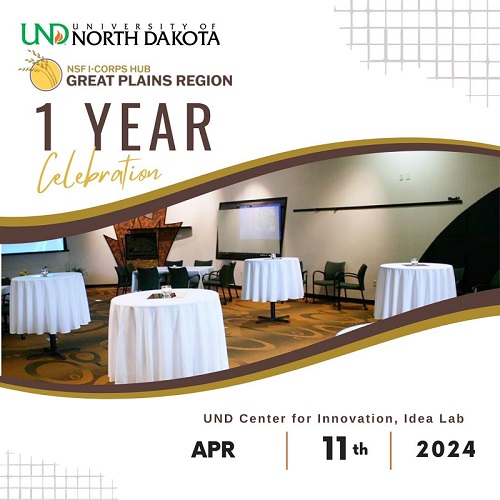UND chemical engineers lead Tribal Energy Sovereignty initiative

The National Science Foundation’s Established Program to Stimulate Competitive Research (EPSCoR) program has awarded a four-year, $4 million-grant to UND and seven partner institutions and organizations to advance tribal energy sovereignty.
The project, referred to as the “Sustainable Engineering Infrastructures and Solutions for Tribal Energy Sovereignty” program, will be led by two faculty from the Chemical Engineering department: Wayne Seames, Chester Fritz Distinguished Professor of chemical engineering and Bethany Klemetsrud, assistant professor of chemical engineering. Other UND participants include Woei Hung, Professor of Education and Human Behavior and Haochi Zheng, Associate Professor of Earth System Science & Policy.
Tribal communities often consist of rural, spread-out populations with distributed, smaller-scale power, heat and fuel energy systems, which are less reliable and may be less resilient to anticipated shifts in weather patterns and severity due to climate change. To assist in addressing this issue and to strengthen the research infrastructure of the North Dakota and Kansas EPSCoR jurisdictions, UND, in collaboration with North Dakota State University and Kansas State University, and with participation by Haskell Indian Nations University, Turtle Mountain Community College, Nueta Hidatsa Sahnish College, and the Tribal Nations Research Group, will work to develop technologies and methods to provide sustainable, reliable and efficient engineering infrastructures and solutions for tribal energy sovereignty.
The grant also includes educational activities, such as tasks that will support Native STEM students to develop tribal nation workforces that will support renewable energy infrastructure for building tribal energy resiliency and independence.
This innovative project will be developed in partnership with tribal nations in Kansas and North Dakota, and its outcomes will be assessed from environmental, economic and social perspectives for both the short- and long-term.
For more on this development, read the full story at UND Today.
